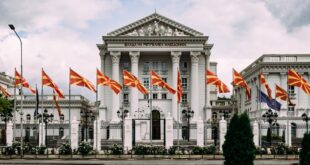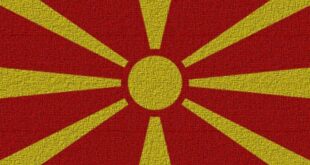Skopje/Sofia – A diplomatic row over a prison sentence Macedonia handed to a Bulgarian national could signal growing ethnic tensions and further burden Skopje’s already stalled bid to join the EU and NATO, media said Thursday in both countries. Macedonia recently sentenced 23-year-old mother-of-two Spaska Mitrova to three months in prison over her refusal to allow her Macedonian husband child visitation rights.
The Bulgarian foreign ministry Wednesday asked Skopje to reconsider the sentence on grounds it “does not meet European criteria” and threatened to block Macedonia’s EU integration process.
Mitrova is among thousands of Macedonians with Bulgarian nationality and passports.
With their country taking a strong turn to the right in a conservative election victory a month ago, Bulgarian leaders have already accused Macedonia of sentencing Mitrova to scare its citizens away from seeking Bulgarian passports.
Macedonia dismissed the objections. Its foreign ministry said “friendly bilateral relations should not be held hostage by those aiming to cover up family disputes and criminal acts,” Skopje newspapers reported.
Conservatives also firmly rule in Macedonia, after winning a landslide election there 14 months ago.
The nationalists surged amid worries by Slavic Macedonians that their country is being lined up for dismemberment by their larger neighbours, Albania in the west and Bulgaria in the east.
The restive Albanian minority, making up one-quarter of the population, would be happy to split from Macedonia.
Now concern is growing over a possible rekindling of aspirations of the Bulgarian minority, which has grown in recent years owing to the large number seeking Bulgarian passports.
The former Yugoslav republic was in line to join NATO along with Albania and Croatia, but was not invited last year because of a veto from Greece, which claims the name Macedonia for its northern province.
In long negotiations,Skopje has refused to budge to Greek pressure even at the cost of NATO membership, which it sees as a guarantee of its own borders.
 Eurasia Press & News
Eurasia Press & News



